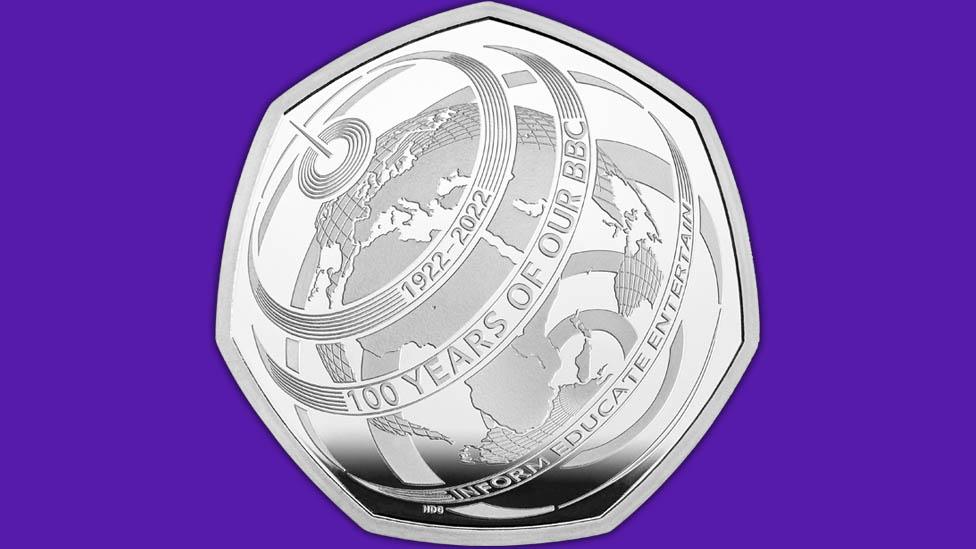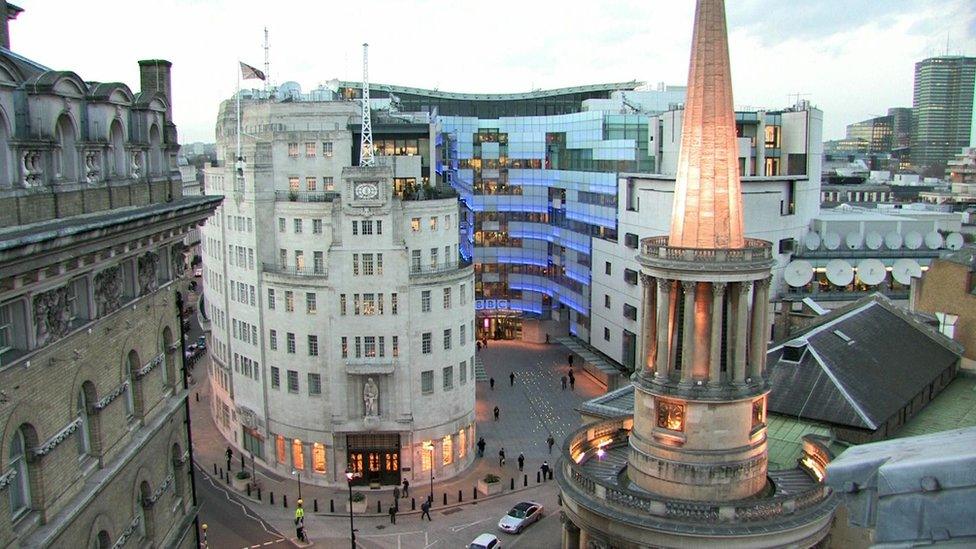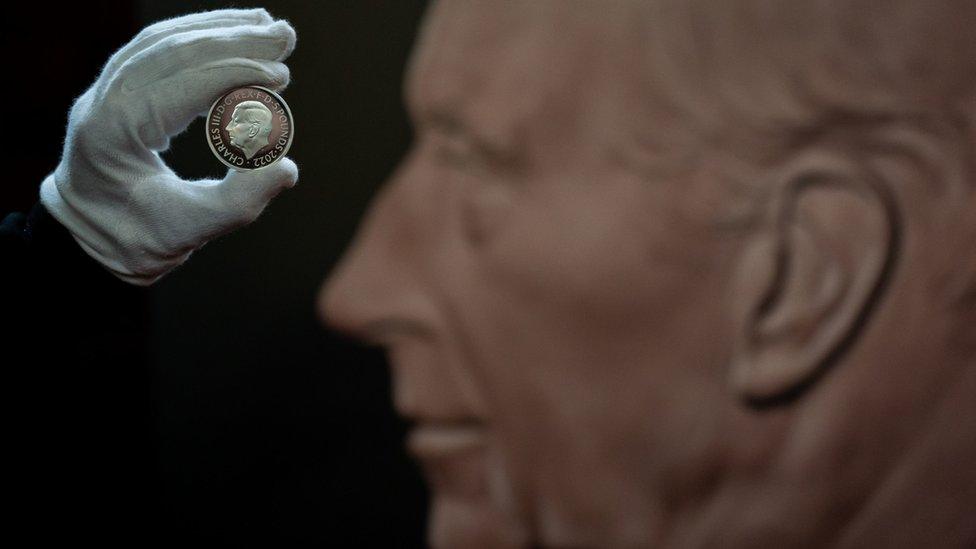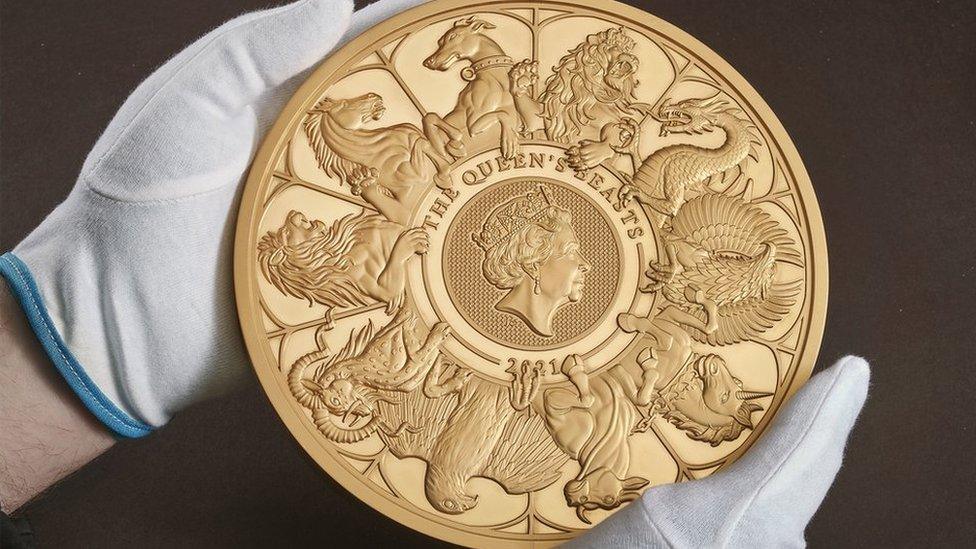New 50p coin celebrates 100 years of the BBC
- Published
- comments

A new 50p coin celebrating 100 years of the BBC has been revealed by The Royal Mint... and it features an image of the Queen.
There is also an image of planet Earth with a broadcast mast coming out of it.
This is a tall tower with antennas which is used for telecommunications and broadcasting and symbolises that the BBC broadcasts to people all over the world.
The coins were produced before Queen Elizabeth II died in September so they have a picture of Her Majesty on them.
Although new coins will now feature King Charles III, these commemorative ones will not be remade.
That is in order to "minimise waste or unnecessary environmental impact", the Royal Mint has said.
Having the Queen's face on these coins is expected to create "a high demand among collectors", The Royal Mint has said.
There are also words on the coin which say, "inform, educate, entertain": these are the BBC's values which were set out by Lord Reith when he founded the BBC in 1922.
Rebecca Morgan, the Royal Mint's director of collector services, said the company was "delighted" to work with the BBC "to create a special 50p" to mark 100 years of the organisation.
She added: "The BBC has had a clear influence on our culture and broadcast some of the most extraordinary moments in British history."
How did the BBC start?

New Broadcasting House, London is the headquarters of the organisation
The BBC, or British Broadcasting Company, started on 18 October in 1922 by a group of radio makers.
Lord John Reith was the first managing director of the BBC and he wanted broadcasting to be taken seriously.
The BBC is behind some of Britain's best known programmes and technology which has has shaped people's lives.
Here are some of the BBC's historic moments below.
1922 - A man called Arthur Burrows, who was the Director of Programmes for the BBC, read two news bulletins on 14 November - one at 6pm and one at 9pm - and this was the first ever BBC radio broadcast.
1927 - People heard football commentary for the first time. It was a Division One match between Arsenal and Sheffield United.
1932 - The first centre for radio broadcasting in the UK called Broadcasting House was built in London. This was also the same year the first woman presented a programme on the BBC. Although unfortunately she was removed from the position after the BBC received thousands of complaints from listeners who were uncomfortable with hearing a woman announcer at the time.
1936 - On the 2 November, the first regular hi-definition TV service began.
1937 - The first TV outside broadcast (OB) took place at The Coronation of King George VI.
1955 - The BBC's first television programme for deaf children launched. The show was updated in 1964 called 'Vision On' and this ran on BBC One until 1976.
1958 - Blue Peter launched on the BBC.
1963 - The first episode of Doctor Who aired on TV on 23 November.
1967 - BBC2 became the first colour television channel and broadcasted full coverage of the Wimbledon Lawn Tennis Championships.
1972 - Newsround launched on BBC One with John Craven - it was the first dedicated news programme for children.
1995 - Digital Audio Broadcasting (DAB) begins. This meant more, clearer, radio and extra programmes and channels were launched.
1997 - The BBC went online, inspired by Director-General John Birt.
2004 - Strictly Come Dancing airs on BBC One with Sir Bruce Forsyth and Tess Daley - there were only eight contestants in the first series.
2007 - BBC iPlayer was launched.
2013 - New Broadcasting House is built in London.
2020 -BBC Bitesize Learning on TV in response to the Covid-19 pandemic, the BBC powers up support for young people's education at home.
- Published30 September 2022

- Published29 April 2021

